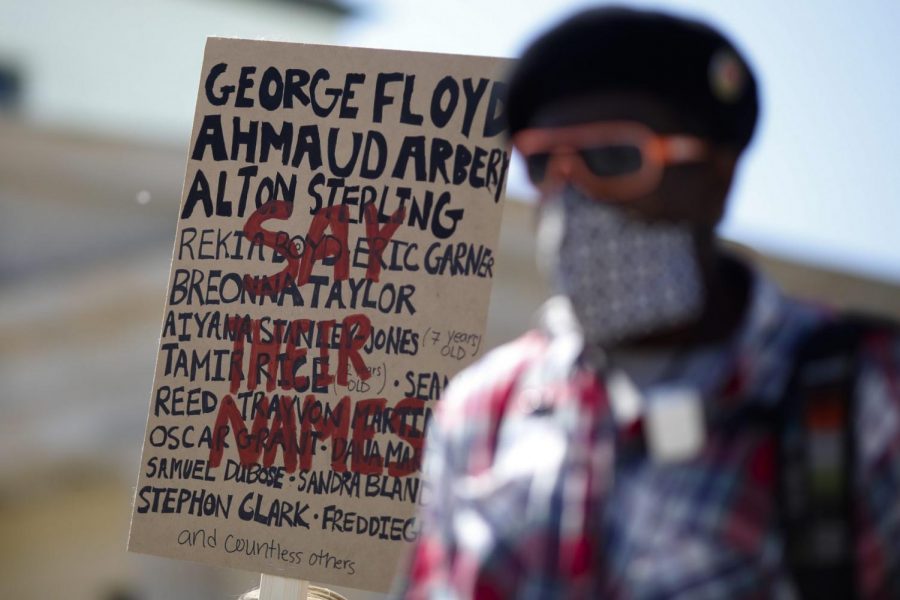Family-ordered autopsy: Floyd died of asphyxia
Ismael Kamara stand in front of a poster with names from people died after police violence the demonstrators say, as he attends a rally to commemorate George Floyd and against racism and police violence in front of the Brandenburg Gate in Berlin, Germany, Monday, June 1, 2020. Floyd died after being restrained by Minneapolis police officers on Memorial Day May 25.
MINNEAPOLIS — An autopsy commissioned for George Floyd’s family found that Floyd died of asphyxiation due to neck and back compression, the Floyd family’s attorneys said Monday.
The autopsy by a doctor who also examined Eric Garner’s body found the compression cut off blood to Floyd’s brain, and weight on his back made it hard to breathe.
The family’s autopsy differs from the official autopsy as described in a criminal complaint against the officer.
That autopsy included the effects of being restrained, along with underlying health issues and potential intoxicants in Floyd’s system, but also said it found nothing “to support a diagnosis of traumatic asphyxia or strangulation.”
Floyd, a black man who was in handcuffs at the time, died after the white officer ignored bystander shouts to get off him and Floyd’s cries that he couldn’t breathe.
His death, captured on citizen video, sparked days of protests in Minneapolis that have spread to cities around America.












